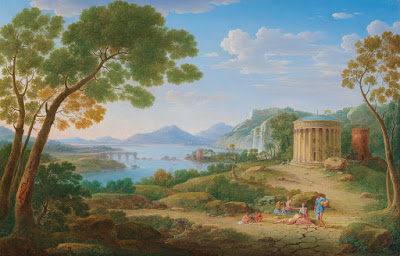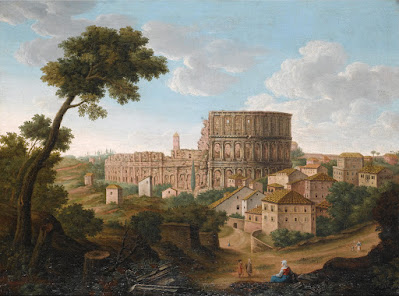 |
| Hendrik Frans van Lint Landscape with Tempietto 1748 oil on canvas private collection |
 |
| Hendrik Frans van Lint Landscape with Circular Temple before 1763 oil on canvas private collection |
 |
| Hendrik Frans van Lint Landscape with a Palace 1721 oil on canvas private collection |
 |
| Hendrik Frans van Lint Italianate Landscape before 1763 oil on canvas private collection |
 |
| Hendrik Frans van Lint Landscape with Hunting Party before 1763 oil on canvas private collection |
 |
| Hendrik Frans van Lint Landscape with an Italian Hill Town ca. 1700-1725 oil on canvas National Gallery, London |
 |
| Hendrik Frans van Lint Villa Madama in Rome 1748 oil on canvas Fitzwilliam Museum, Cambridge |
 |
| Hendrik Frans van Lint Campo Vaccino, Rome before 1763 oil on canvas Victoria Art Gallery, Bath |
 |
| Hendrik Frans van Lint Arch of Constantine, Rome ca. 1730 oil on canvas Government Art Collection, London |
 |
| Hendrik Frans van Lint View of Piazza Navona, Rome ca. 1730 oil on canvas Los Angeles County Museum of Art |
 |
| Hendrik Frans van Lint Portrait of Jacob van Lint with St Peter's Basilica in the Background (the artist's son, also a painter) ca. 1750 oil on panel private collection |
 |
| Jacob van Lint View of the Colosseum, Rome before 1790 oil on canvas private collection |
 |
| Jacob van Lint Shepherds and Resting Soldiers in front of an Ancient City Gate before 1790 oil on canvas private collection |
 |
| Jacob van Lint View of the Basilica of St John Lateran, Rome before 1790 oil on canvas private collection |
 |
| Jacob van Lint Street Scene with Trajan's Column, Rome before 1790 oil on canvas Fondazione Sorgente Group, Rome |
"Henrik Frans van Lint was one of the most accomplished and sought-after vedutisti working in Rome in the first half of the 18th century. Born in Antwerp, he trained briefly under Pieter van Bredael in 1696-97 before traveling to Rome in 1700, where he spent the rest of his life. Once in Rome van Lint found a large community of northern artists living and working in the Tridente, and became a member of the Schildersbent, the fraternal association of northern artists in Rome. . . . Van Lint's nickname, 'Monsu Studio,' may refer to his meticulous technique, which he modeled on the great master, Claude Lorraine. Like Claude, van Lint would make detailed drawings in pencil, pen and wash, often in situ, when on his frequent expeditions to the countryside around Rome. He would then use these preparatory drawings to work up full-scale compositions on canvas, often adding ruins and classical buildings to create elaborate imaginary landscapes. . . . He probably also worked as a picture restorer, and among his ten children, Giacomo (or Jacob) became a distinguished landscape painter in his own right."
– from a biographical sketch published by Christie's, London